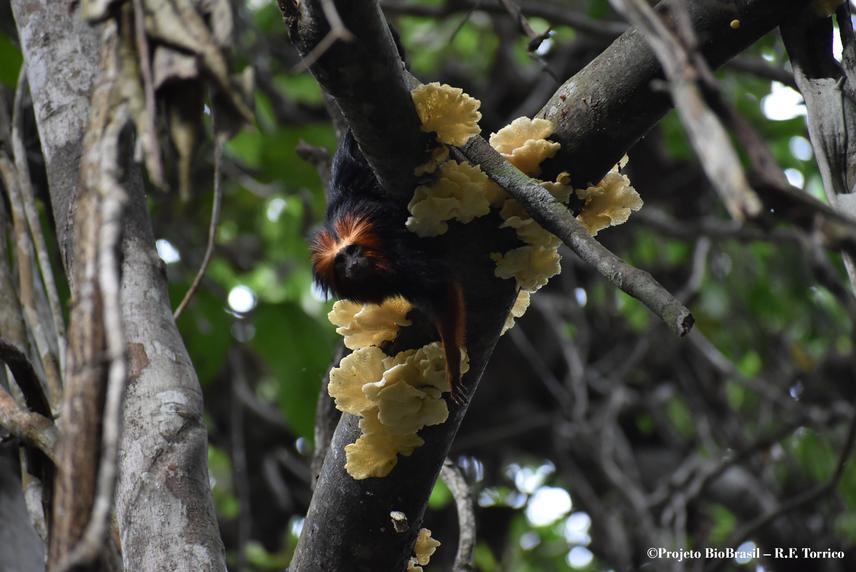Roberto Fiorini Torrico
The main goal of this project is to better understand how food abundance triggers certain behavioural and physiological responses in golden-headed lion tamarins (GHLTs) – Leontopithecus chrysomelas and whether these mechanisms help them cope with the environmental challenges imposed by habitat degradation. To achieve this, we intend to validate the use of faecal glucocorticoids and triiodothyronine in wild GHLTs and distinguish the concentrations between sex, dominance rank and female reproductive status. Subsequently, we aim at identifying the foraging strategies and key food sources that significantly affect the hormonal levels, and thus play an important role for the GHLTs’ energy acquisition. With this information not only will we shed light on the interrelations among GHLTs’ adaptive behaviour, physiological measures and food access but, more importantly, we will provide the GHLTs’ strategic management plan of a more accurate evaluation of degraded forests’ suitability and pinpoint critical resources for their long-term survival.

Golden-headed-lion-tamarin. © Projeto BioBrasil - R F Torrico.
Habitat fragmentation has altered resource availability for many species, affecting their capacity to obtain and spend energy. The inability to cope with these changes induces a spectrum of behavioural and physiological responses that reflect an individual’s energetic condition. In this project, we propose to assess the energetic condition of wild golden-headed lion tamarins (GHLTs) by linking availability of plant-based food items, activity patterns, and two physiological measures that denote changes in the energetic balance of various vertebrates: faecal glucocorticoids and faecal triiodothyronine. The first one promotes the mobilization of stored energy when a subject faces a challenge and the second one regulates the metabolic rate with respect to his energetic balance.
The targeted species are GHLTs, which are small primate’s endemic to the Southern Bahian Atlantic Forest, listed as an endangered species by IUCN, mostly due to habitat loss and degradation. Most of the wild population of GHLTs inhabits landscape mosaics that comprise forest remnants in different successional stages and agricultural plantations, such landscape can be found in our study area. Our project site is located in Colônia de Una (Bahia) and is part of the study area of Project BioBrasil, a conservation research project managed by the Centre for Research and Conservation of the Royal Zoological Society of Antwerp, that along with other institutions will collaborate with the present project.
Previous studies conducted in our study area have, in fact, demonstrated that resource constraints impact GHLTs’ activity budget and increase their vulnerability to parasites, encouraging us to take further steps to investigate how food shortage influences the energetic condition of GHLTs, and whether physiological and behavioural adjustments to such factors can effectively alleviate potential energetic stress, thereby enhancing GHLTs’ fitness. The main activities involved in our project are:
1) establishment of phenology plots within the home ranges of three GHLTs’ troops and the selection of specimens of 23 frequently consumed tree species
2) focal observation of 12 adult GHLTs to collect data on the activities categorized in energy intake (foraging and eating fruits, flowers or animals), energy expenditure and conservation (travelling, resting or remaining stationary), and psychosocial stressors (intra and intergroup conflict, grooming or playing)
3) collection and processing of GHLTs’ faecal samples concurrent with focal observations, field-storage of samples, subsequent freeze-drying and extraction of metabolites from samples.
4) monthly phenology evaluation of marked trees
5) validation of lab assays and measurement of hormone concentrations.